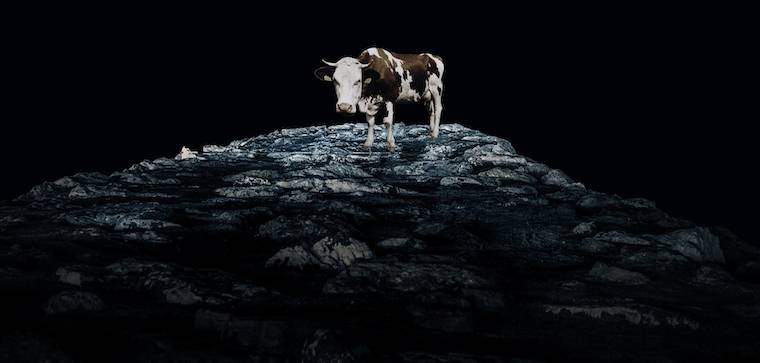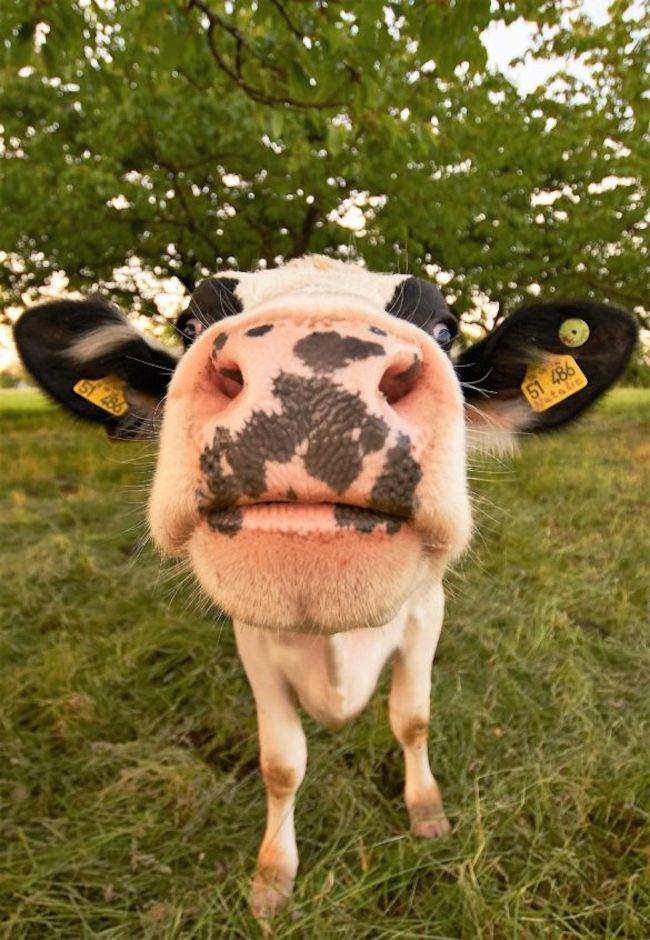
Interview with Filmmaker Thomas Wade about A Prayer for Compassion
Animals: Tradition - Philosophy - Religion
FROM SARX For All God's
Creatures
April 2019
Filmmaker Thomas Wade Jackson speaks about his new film A Prayer for Compassion and hopes for reaching faith communities with his message of veganism and compassion for animals.

Tell us about yourself and your new film A Prayer for Compassion.
I was born in a small town in South Georgia and was raised Southern Baptist
and grew up eating the same standard American diet as the majority of people
at the time. I didn’t become vegan until 2005 when I was in my mid-30s
living in NYC and attending a Unity Church. No one at Unity or anywhere else
ever suggested that I be vegetarian, and I’d never even heard the word
“vegan”. I feel it was starting a daily meditation practice and studying the
teachings of Jesus about kindness and compassion that intuitively led me to
transition to a non-violent diet.

It wasn’t long before I started noticing that when we would go to brunch
after church, the ministers and chaplains that were teaching me about love
and compassion for all were for some reason excluding the animals on their
plate. But I thought “who am I to judge another” and decided to live and let
live and be a good example. And for about a decade I did just that, until my
daughter was born and then I saw Cowspiracy and for the first time became
aware of the devastating effect that animal agriculture is having on the
planet. I was shocked and felt I had to do something, but I didn’t know what
to do. So, I prayed and mediated about it and it was in a mediation that the
idea for the film originated.
In the film I travel around the United States and India, as well as attend
the UN Conference on Climate Change in Morocco, interviewing spiritual and
religious people about the teachings of compassion that create the
foundation of their tradition. And it turns out that a vegan lifestyle is
not only in alignment with every spiritual path I explored, it’s the very
embodiment of those teachings. Vegans are truly living the values of their
faith every single day by choosing to eat a non-violent diet.
What are you hoping to achieve through your film?
One of the main things we hope to do with the film (besides alleviating
unnecessary suffering) is to get this discussion started in our churches and
places of worship. I want ministers and clergy to realize that whether they
have an interest in going vegan or not, there is probably someone they’re
ministering to that is vegan, or either they’re like so many people I’ve met
over the last three years, who have left their places of worship because of
feeling ridiculed for making a compassionate choice that is very often
motivated by their faith.
I also want to remind the audience of the power of their daily choices. How
every dollar we spend is a vote for the type of world you want to create.
And by switching to a vegan lifestyle you are voting for a more peaceful,
healthy and sustainable world three or more times a day.
Did you receive any insights from the variety of Christians that you
interviewed about faith and animals?

Even though I was raised Christian, before making this film I never
realized how much the Bible supported a plant-based diet and held it up as
the ideal, starting with Genesis 1:29 where we’re told to eat exclusively
plants. And it’s only 3 verses before that – in the same conversation –
where God gives us ‘dominion’ over the animals. So, it’s clear that dominion
doesn’t mean eating them. And now with all the evidence that eating animal
products is destructive to human health, we have to consider the teachings
of our bodies being temples for the holy spirit. And as Elaine West, a
devout Christian and the founder of Rooterville, a farmed animal sanctuary
says in the film, “You don’t put trash in a temple.”
I think that it is a lack of awareness that allows so many people to
continue to participate in such a violent industry that is totally out of
alignment with their kind and compassionate nature. This is why I believe
it’s important for Christians to be made aware that over 74 billion farmed
animals are forcefully bred and painfully slaughtered every year, and they
eat 5 times more food than humans. And raising them is our number one user
and polluter of water, as well as being number one at air pollution,
deforestation, species extinction and ocean dead zones. Not to mention the
epidemics of lifestyle diseases and deaths caused by eating dead animals and
their secretions. The bottom line is that animal agriculture is the number
one destroyer of our environment, human health and of animals. How long can
compassionate Christians continue to support and finance such an evil
industry?
Are you optimistic that compassion can indeed grow to include all
beings?
I’m very optimistic that as Christians and other people of faith begin to
understand what is happening to the animals, the planet and human health,
they will make more compassionate choices. In my travels I’ve met so many
wonderful purpose driven people who are working on these issues from a
multitude of angles. I began to see the problem as a big boulder that’s
blocking our path to the Peaceable Kingdom which was wrote about in Isaiah,
and I believe that once we have enough hands pushing on this boulder we will
roll it out of our way. And if it’s anything like the other social justice
issues in our past, it will be the compassionate religious amongst us who
will lead the way. This is why it’s so important that in a non-judgmental
way, we help our religious and spiritual brothers and sisters see past their
indoctrination into the normalize violence of eating and wearing animals,
and gently help them bring their values and beliefs into alignment with
their daily actions.
In what ways can Christians play an active role in including animals
within their circle of compassion?
To help get this conversation started, along with the film we are working
with In Defense of Animal’s Interfaith Vegan Coalition (IVC) to create local
support groups where vegan Christians can unite with vegan from other faiths
and places of worship in their area to work together in bringing about
compassionate change within their faith-based communities, by hosting film
screenings, potlucks, panel discussions and more. You can find out more by
contacting us at the IVC’s website, where you can also locate and download
faith specific “Advocacy Kits,” that give information on how a vegan
lifestyle is in alignment with various religious and spiritual paths.







